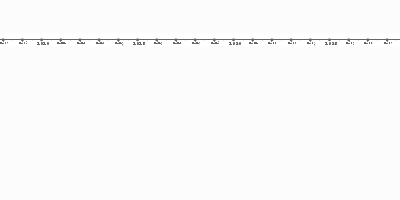1 ottob 1949 anni - Mao declares People's Republic of China
Descrizione:
Causes:Communist military strengths - Mao was a skilled leader, and Lin Biao was an outstanding military general who was skilled in guerrilla warfare. The PLA used a wide range of tactics, including guerrilla warfare in the mountains and conventional warfare to attack the weakened GMD in pitched battles in the cities. The PLA army was also very disciplined and treated the local population with respect.
GMD military weaknesses - Chiang was a poor military leader who could not give authority to those with the necessary military skills. They made tactical errors, such as sending troops into Manchuria before securing control of the rest of North-eastern China, Reducing supplies (Stranding the troops) which led to half a million deaths. The NRA was also a conscripted army that was poorly supplied and cruelly treated, leading to a high number of deaths and desertions.
Loss of support for the Nationalist government (GMD) - Under Chiang Kai-shek, the GMD was widely seen as corrupt, inefficient, and authoritarian. After returning to power in 1945, the GMD failed to introduce genuine democratic reforms and had not introduced Sun Yat-sen's 'Three Principles of the People' and instead relied on censorship and repression. Chiang's government was also closely associated with landlords and business elites, alienating much of the population in an effective dictatorship. In contrast, the Communist Party (CCP) promoted itself as a movement of the people, offering a more inclusive and disciplined alternative. The CCP’s promise to rebuild China and fight for equality gained them strong political legitimacy, especially among the peasantry.
Hyperinflation and economic mismanagement during and after the Second World War - The GMD printed excessive amounts of money to fund its war effort, leading to soaring prices and the collapse of the currency. Many middle-class Chinese, especially in urban areas, lost their savings and livelihoods. Meanwhile, the CCP gained support in rural areas through its land reform policies, where it confiscated land from wealthy landlords and redistributed it to peasants. This provided the majority of China’s population, who were poor farmers, with a strong economic reason to back the Communists.
CCP won widespread support from the rural population - Peasants, who made up around 80% of China’s population, supported the Communists because of their promises of land redistribution, fair treatment, and education. The Red Army, unlike the GMD forces, treated civilians with discipline and respect, often paying for food and avoiding acts of violence against local people. The Communists also promoted gender equality, allowing women to own land and take part in political activity, which gained them additional support. These social policies helped Mao build a strong, loyal base across the countryside.
Aggiunto al nastro di tempo:
Data:
1 ottob 1949 anni
Adesso
~ 75 years ago
